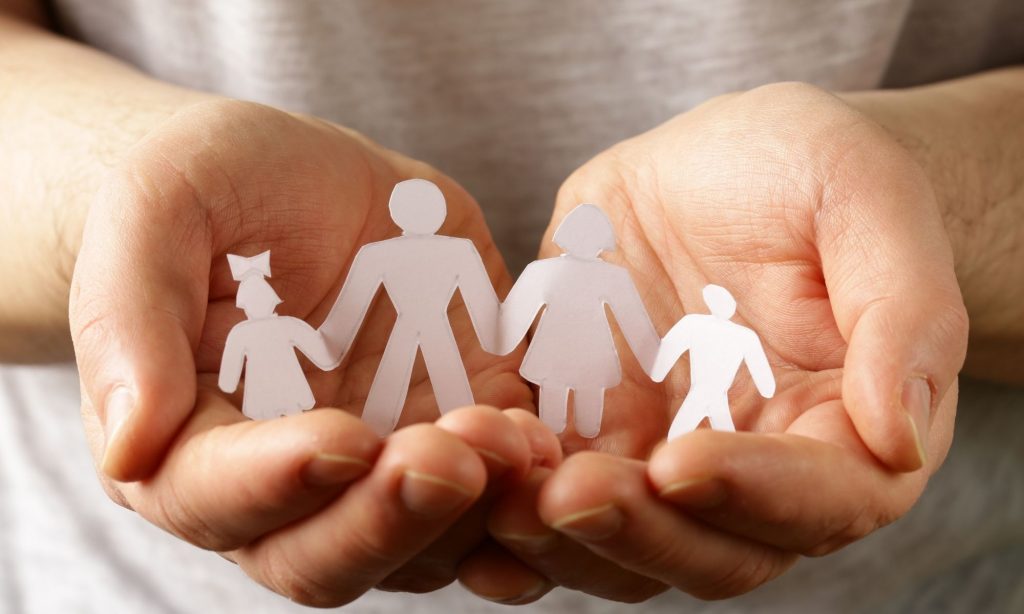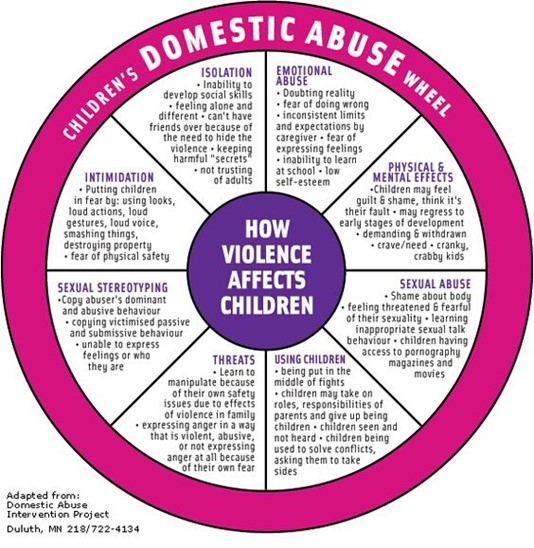Over the last year, many children and young people have been at home more with homeschooling and not being able to see family and friends. It has been hard for everyone, but for some of your employees and their children, it may have included the added traumas of Domestic Abuse in the home.

If there is abuse in the home an abused parent can become depressed, distracted, and emotionally drained – something that may present itself in the workplace. But they may also have a reduced ability to be emotionally available and attentive, or sensitive to their children’s needs.
There are adverse effects that Domestic Abuse can have on parenting. If you are a parent, working with families, working with children/young people or supporting employees who are caring for children you may have seen or heard these things and assumed it was bad parenting. For example:
- A parent may have difficulties performing everyday childcare tasks such as getting the children up and out, providing breakfast, the right equipment and helping them organise themselves for the day. This may present at work as them being late on a regular basis.
- A parent may be undermined by a controlling partner so they find it difficult to discipline their children and impose behaviour boundaries themselves. This could mean there is child to parent abuse.
- Children may perceive their abused parent as weak and unable to protect them from harm, they may feel angry towards them, and this shows in their behaviour. If you are an education provider or early years setting you may see this in children in your classes and groups.
- Children may be coerced by the abusive parent to understand that their other parent is bad – they may be encouraged to verbally abuse and blame one parent and excuse the other. You may hear a child saying things about another parent in a school setting, or at a Company Family Day event.

In our training, we refer to The Children’s Domestic Abuse Wheel (as seen on the right) which highlights some of the effects on children.
In a recent training presentation for Birmingham City Council we also talked about how this can continue into adulthood.
Often a person that has experienced trauma can use various coping mechanisms or show certain mannerisms.
- Body dysmorphia – combatted through over eating, under eating, bulimia.
- Starting arguments – with people that were nice as that wasn’t something they could cope with. They felt unworthy of it.
- Putting themselves down – they described it as getting in there first – ‘if I mocked myself others were less likely to.’
- Addictions – an addiction is often a way to cope, feeling less pressure, a way of forgetting.
- Hiding – taking yourself out of a situation, staying away from people, not dealing with conflict well.
These are things that may be present in employees at work that you recognise. Or through creating a Domestic Abuse Policy and having Workplace Champions, employees may disclose some of the above.
In the Domestic Abuse Act 2021 (see our Employer’s Guide to the Domestic Abuse Act 2021 here) the statutory definition of Domestic Abuse also recognised children as victims of Domestic Abuse. This is the first time that a child who sees or hears, or experiences the effects of Domestic Abuse, and is related to the person being abused or the perpetrator, is also to be regarded as a victim of Domestic Abuse in their own right.
If you need support or you think you know someone who does, please don’t hesitate to get in touch.
